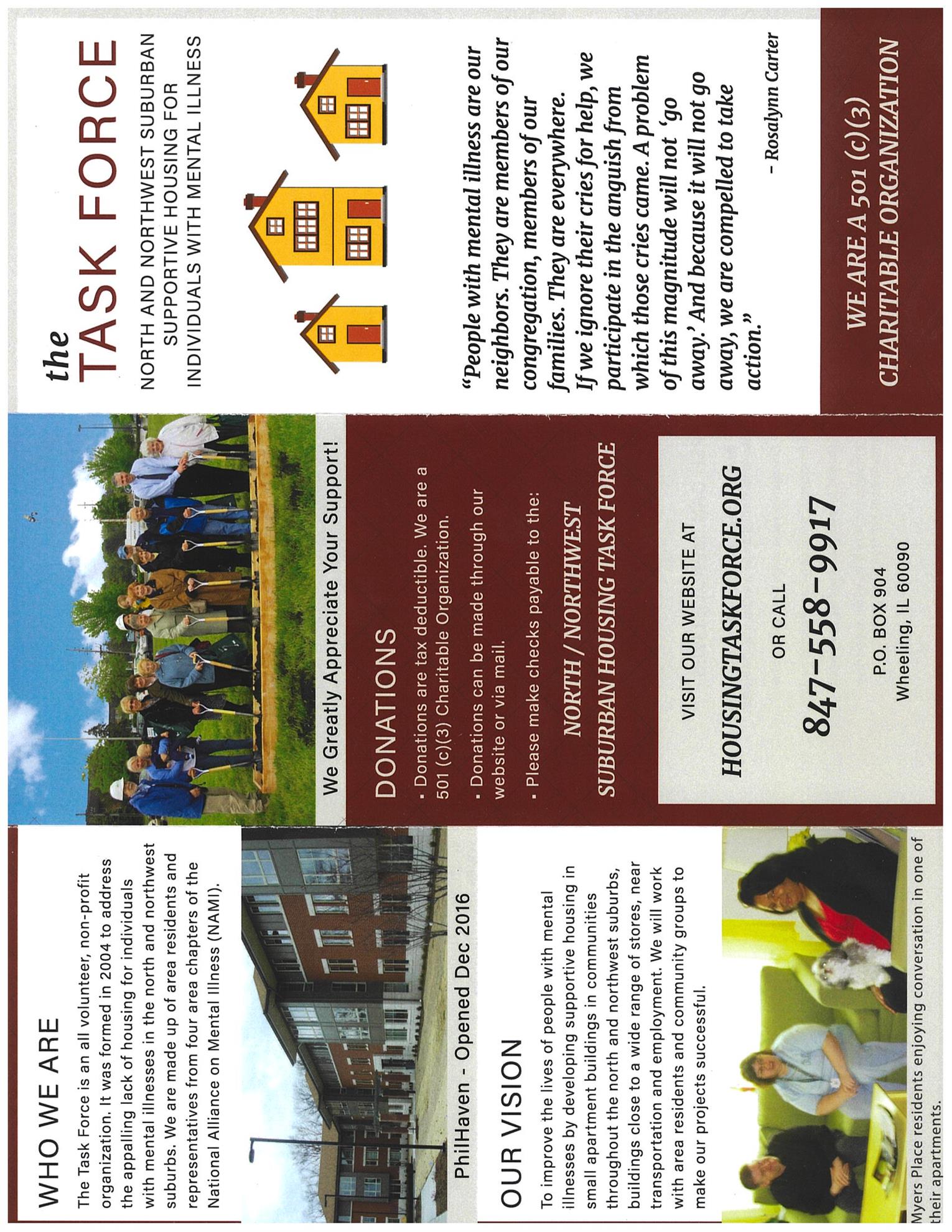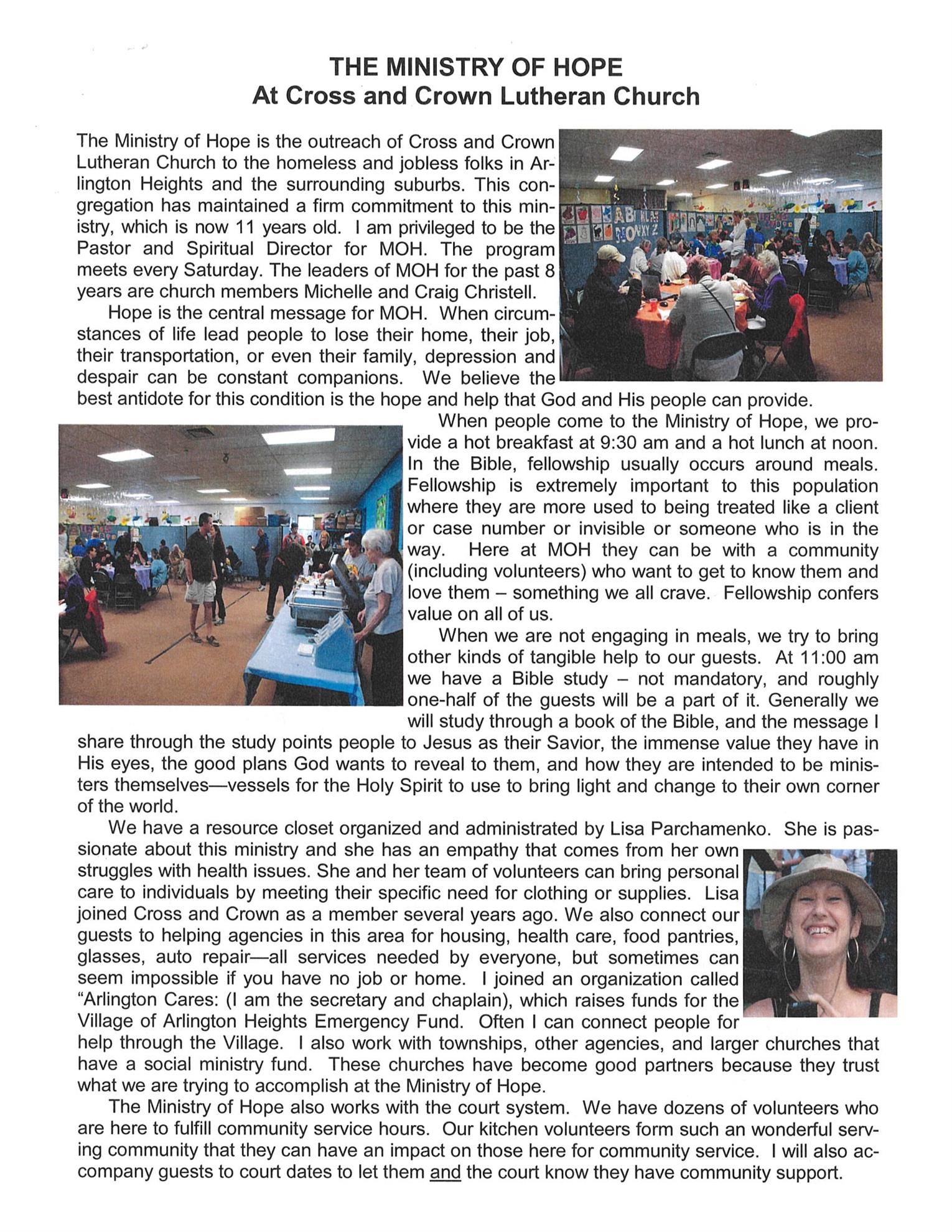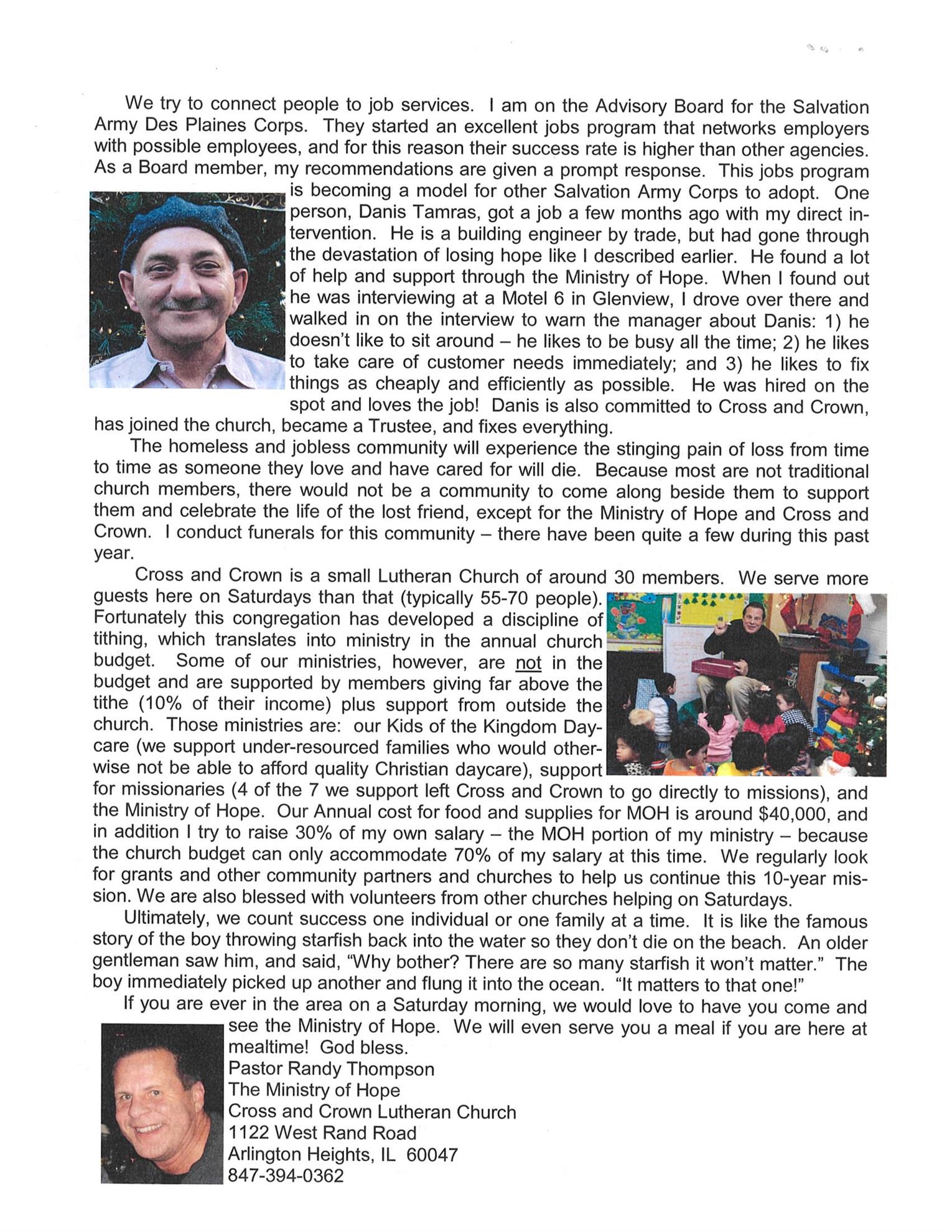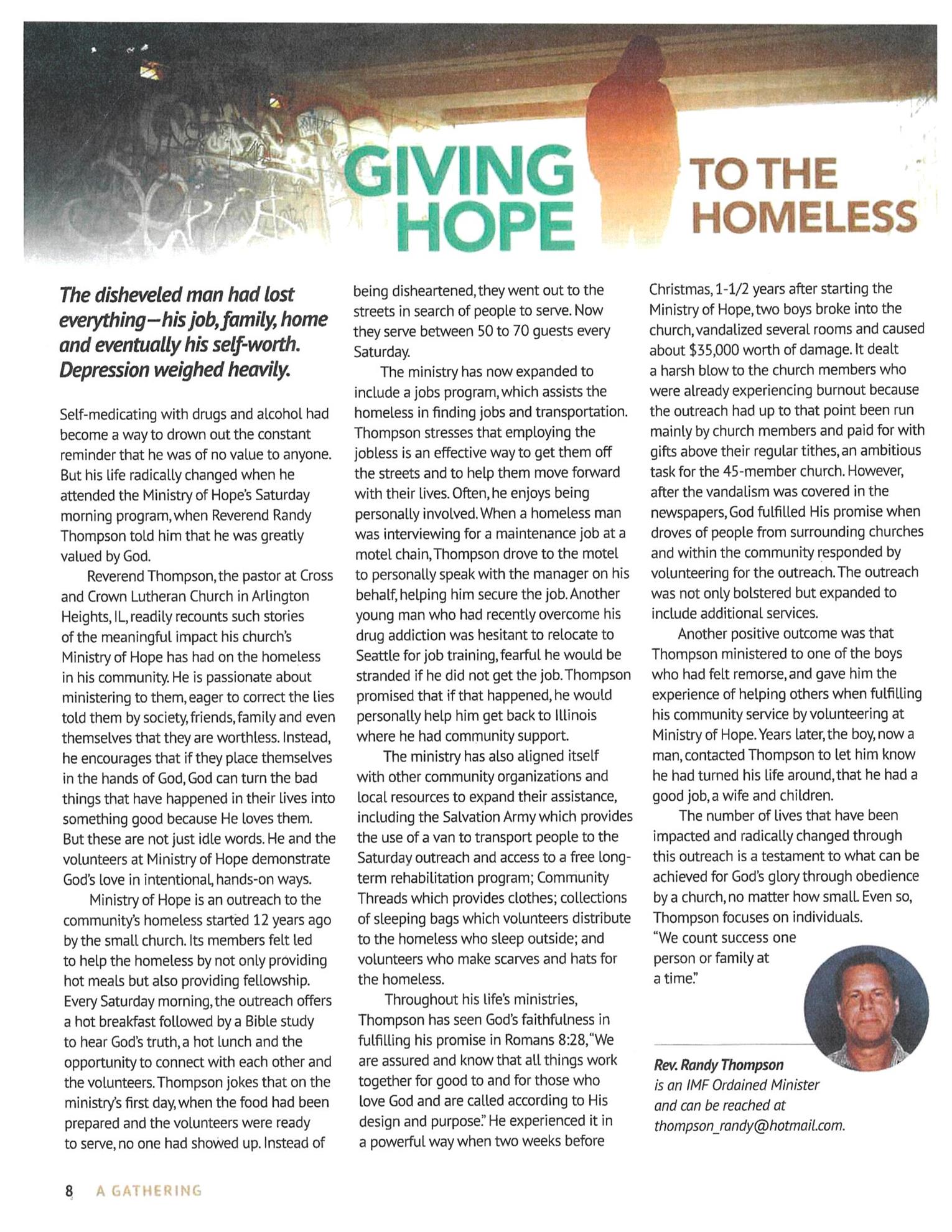Informative and inspiring presentations were given by three organizations receiving local charitable grants from our club. Ranging size from $1,250 to $2,500, in one way they aren't large. But from another perspective they have shown to be significant, practical and effective.
.jpg)
Hugh Brady, center, Board Member of National Alliance on Mental Illness - Illinois, spoke about the North/Northwest Suburban Housing Task Force. His was one of three organizations describing how our grants were used. To find out more about them, click on "read more".
Our $1,250 paid for household items to supplement/outfit apartment furnishings which come with housing units facilitated by the Task Force. Interestingly, he said that 1/2 to 2/3 of mental illness symptoms disappear when living in stable housing. For more information see the brochure below.
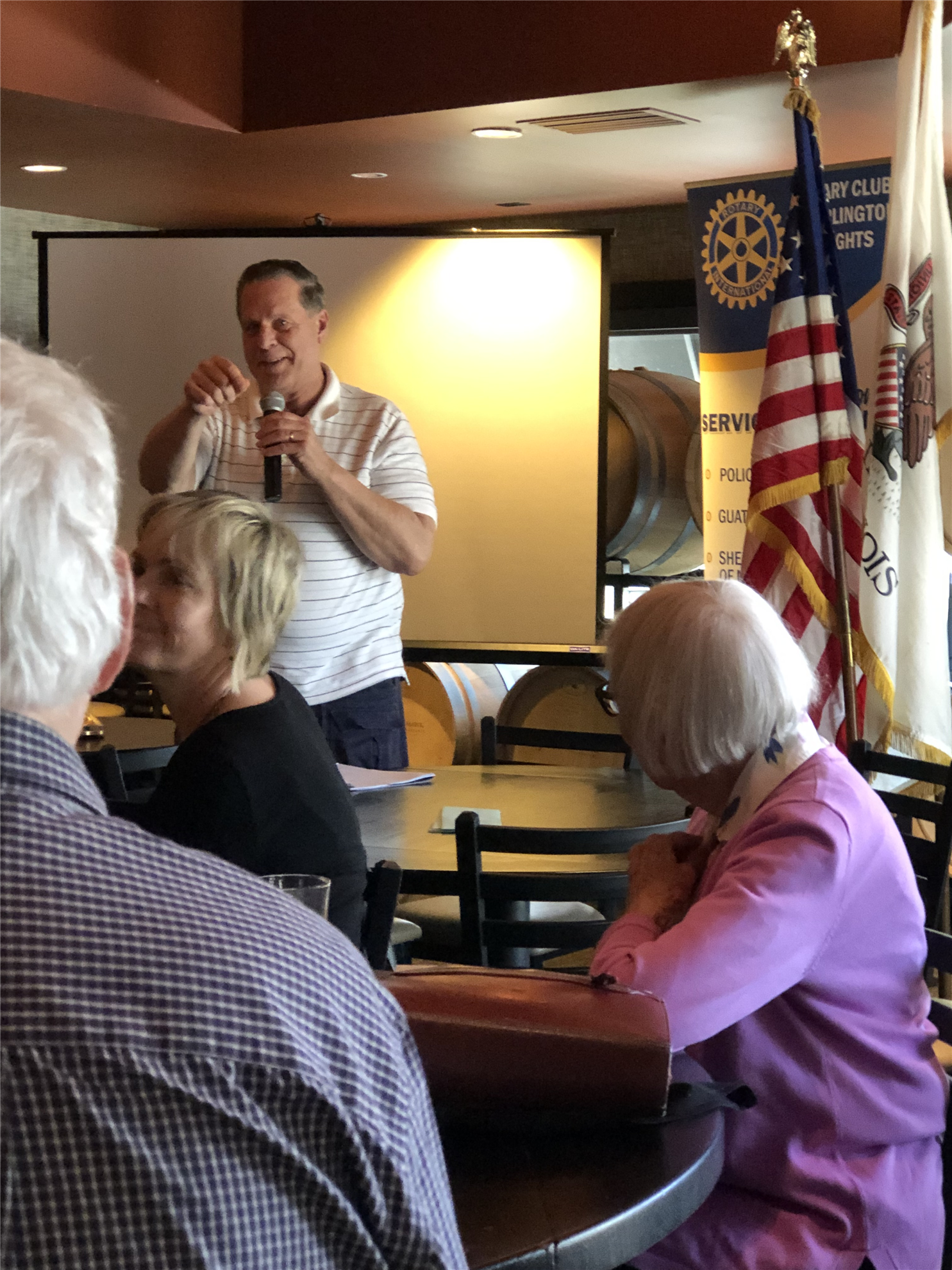 $2,500 went to Ministry of Hope and was used to repair cars for people in need of help. Of 10 cars recently repaired, 6 were needed to get people to their work. One was for a person who needed a functioning car to live in. Without a vehicle, these people wouldn't be able to hold their jobs. Pastor Randy Thompson of Cross and Crown Lutheran Church told us about this program which focuses on outreach to homeless and jobless neighbors. For more information, see the brochure below.
$2,500 went to Ministry of Hope and was used to repair cars for people in need of help. Of 10 cars recently repaired, 6 were needed to get people to their work. One was for a person who needed a functioning car to live in. Without a vehicle, these people wouldn't be able to hold their jobs. Pastor Randy Thompson of Cross and Crown Lutheran Church told us about this program which focuses on outreach to homeless and jobless neighbors. For more information, see the brochure below.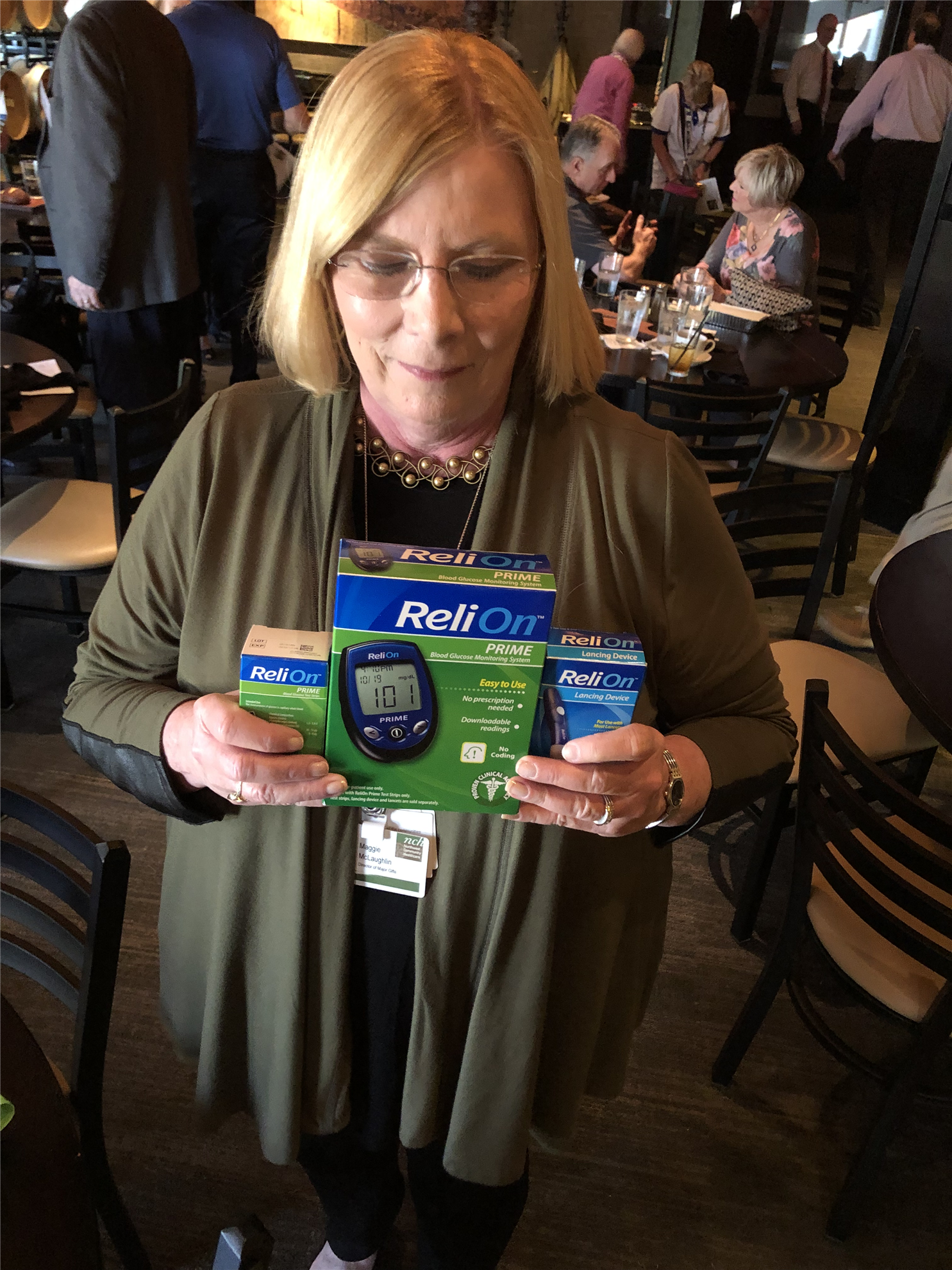 The third presentation was about a program related to Northwest Community Hospital. It received $2,500 for diabetic testing tools and supplies for individuals who can't afford the meter and strips they need. Our grant enabled the purchase of 100 of these packages. So far, 40 have been given out. Maggie McLaughlin of the hospital's Foundation described the effort.
The third presentation was about a program related to Northwest Community Hospital. It received $2,500 for diabetic testing tools and supplies for individuals who can't afford the meter and strips they need. Our grant enabled the purchase of 100 of these packages. So far, 40 have been given out. Maggie McLaughlin of the hospital's Foundation described the effort.Q&A following the presentations added background and insights. A member of the club asked about the causes of the closing of state mental institutions years ago. The response was that two major factors drove the decision -- a desire by some politicians to save money, and a movement by civil libertarians to incorporate the mentally handicapped into everyday life. The hope had been that the state would supply a significant amount of funding at the local level, but only a small fraction of that funding was provided.
